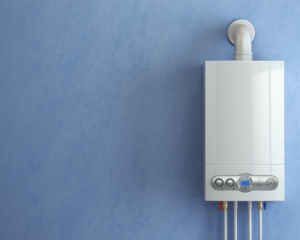
Boiler pressure is a crucial aspect of maintaining an efficient and safe heating system. For homeowners in Cardiff, understanding how to check and adjust your boiler pressure can prevent costly repairs and ensure your boiler operates smoothly.
What is Boiler Pressure?
Boiler pressure refers to the amount of water pressure inside a closed heating system. It’s measured in bars, with most modern boilers operating efficiently at a pressure between 1 and 2 bars. If the pressure is too low or too high, it can affect the performance and longevity of your boiler.
Why is Boiler Pressure Important?
Maintaining the correct boiler pressure is vital for several reasons:
- Efficiency: Correct pressure ensures your boiler heats your home effectively.
- Safety: Overpressure can lead to leaks or system damage, while low pressure might cause your boiler to shut down.
- Cost: Proper pressure reduces the risk of expensive repairs and prolongs the life of your boiler.
How to Check Boiler Pressure
Checking your boiler pressure is a simple process:
- Locate the Pressure Gauge: Most boilers have a built-in pressure gauge. This is typically found on the front of the boiler.
- Read the Gauge: The needle should point between 1 and 2 bars when the system is cold. If the pressure is outside this range, it might need adjusting.
Common Reasons for Pressure Fluctuations
Several factors can cause your boiler pressure to fluctuate:
- Water Leaks: Even small leaks can reduce pressure.
- Bleeding Radiators: This can lower pressure as air is released from the system.
- Expansion Vessel Issues: A faulty expansion vessel can cause pressure drops.
How to Adjust Boiler Pressure
Adjusting boiler pressure can be done by following these steps:
Increasing Boiler Pressure
- Turn Off the Boiler: Ensure the boiler is off and cool.
- Locate the Filling Loop: This is usually a flexible silver hose found underneath the boiler.
- Open the Valves: Slowly open the valves on the filling loop until you hear water entering the system.
- Monitor the Pressure: Watch the pressure gauge and close the valves once it reaches 1.5 bars.
- Restart the Boiler: Turn the boiler back on and check for normal operation.
Decreasing Boiler Pressure
- Turn Off the Boiler: Ensure the boiler is off and cool.
- Bleed the Radiators: Use a radiator key to release water and reduce pressure. Be careful not to overdo it.
- Monitor the Pressure: Check the pressure gauge frequently during this process.
When to Call a Professional
While minor pressure adjustments are manageable for most homeowners, some situations require professional assistance. Contact a boiler technician in Cardiff if:
- Pressure Continues to Drop: Persistently low pressure can indicate a leak or a faulty component.
- Pressure Spikes Frequently: This might be a sign of a more serious issue.
- Unfamiliar Sounds or Smells: Any unusual noise or smell from your boiler warrants immediate professional attention.
Maintaining the correct boiler pressure is essential for the efficiency and safety of your heating system. By regularly checking and adjusting your boiler pressure, you can ensure a warm and comfortable home. For any complex issues or persistent problems, don’t hesitate to reach out to us for a helping hand.
